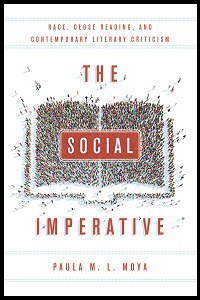Reading to Be Free: Rewriting the Story that Oppression Tells Every Day
DOI:
https://doi.org/10.22029/ko.2016.971Abstract
Through a “socioformal” approach applying social and cultural psychology to literary criticism, Paula M. L. Moya argues for the discipline’s potential to contribute to the study of the “world-making social fictions” of race, ethnicity, gender, and sexuality (p. 1). Deeply written into the consciousness and cultural imaginary, the self is the story we are told, and tell, every day. Regular, brutal self-examinations, or close readings of the self, are instrumental in resisting oppressive external readings and achieving personal as well as social transformation. And literature possesses the tools to survey and deconstruct the fictional mechanics of oppression at the levels of self-concept and the concept of the other. Since multicultural literature provides readers access to subordinated individuals’ schemas, literature “is one of the key sites in which the social order can be imaginatively examined and reshaped” (p. 40).

Downloads
Published
Issue
Section
License
All articles (not book covers) in KULT_online from issue 50 on are published under the license Creative Commons Attribution 4.0. All published articles may be reused under the conditions of the license, particularly for commercial purposes and through editing the article (Human-Readable Summary). All authors (have) permitted the publication under the above mentioned license. There is no copyright transfer towards KULT_online. For all book covers specific rights might be reserved, please contact the respective publisher for any lawful reuse. All contributions published in issue 1-49 of KULT_online are free available online and protected by the German Copyright Law.



